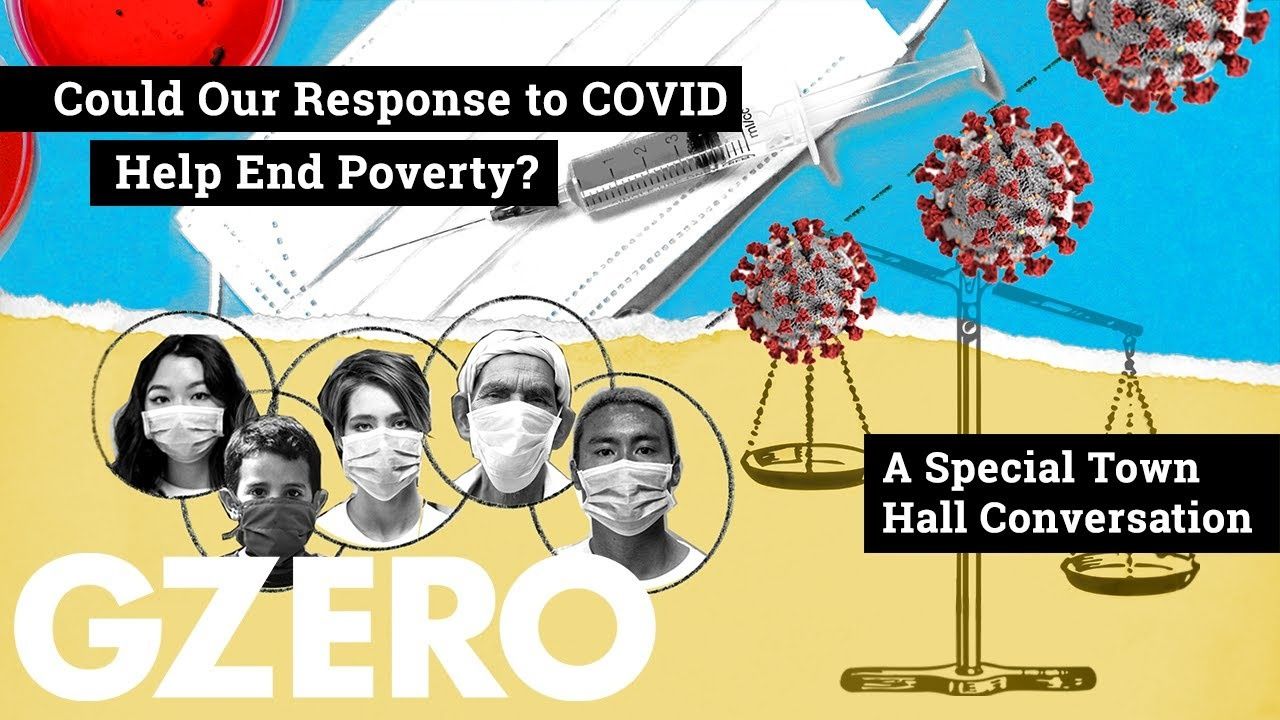Past Events
GZERO Media Town Hall: Could our response to COVID help end poverty?

Could Our Response to COVID Help End Poverty? | A GZERO Media Town Hall

GZERO Media, in partnership with the Bill and Melinda Gates Foundation and Eurasia Group, today hosted its first virtual town hall on how to fight global poverty amid the coronavirus pandemic.
The panel featured Gates Foundation CEO Mark Suzman, Eurasia Group and GZERO Media President Ian Bremmer, and Vera Songwe, Executive Secretary of the United Nations Economic Commission for Africa. The conversation was moderated by Africa No Filter's Moky Makura.
Watch the full video above.
Has the pandemic strengthened or weakened multilateral organizations?
Songwe:
How do we ensure that if a COVID-19 vaccine is developed, it can reach every corner of the globe?
Suzman:
Should low- and middle-income countries be entitled to debt relief amid the pandemic?
Bremmer:
As expected, the Supreme Court struck down the bulk of Donald Trump's sweeping “Liberation Day” tariffs as illegal … and almost nothing changed.
Chris, an Army veteran, started his Walmart journey over 25 years ago as an hourly associate. Today, he manages a Distribution Center and serves as a mentor, helping others navigate their own paths to success. At Walmart, associates have the opportunity to take advantage of the pathways, perks, and pay that come with the job — with or without a college degree. In fact, more than 75% of Walmart management started as hourly associates. Learn more about how over 130,000 associates were promoted into roles of greater responsibility and higher pay in FY25.
Somewhere in the Donbas region, Ukrainian soldier Artem Bondarenko says he hasn’t slept through the night in months as he defends Eastern Ukraine.
In the latest episode of Vladimir Putin and Xi Jinping's hit wellness podcast This Authoritarian Life, we learn how positive communication patterns can break negative cycles in our relationships -- especially our relationships with Iran, Syria, Venezuela, and Cuba. #PUPPETREGIME